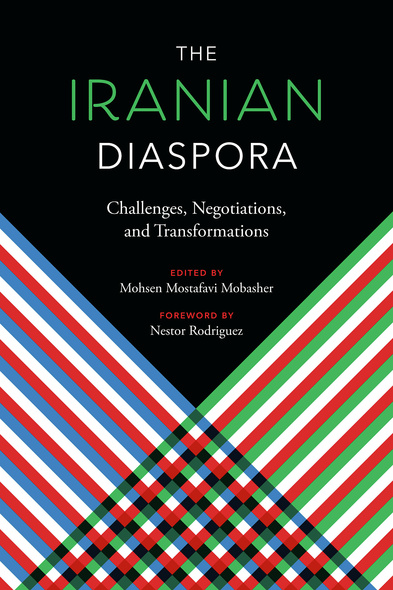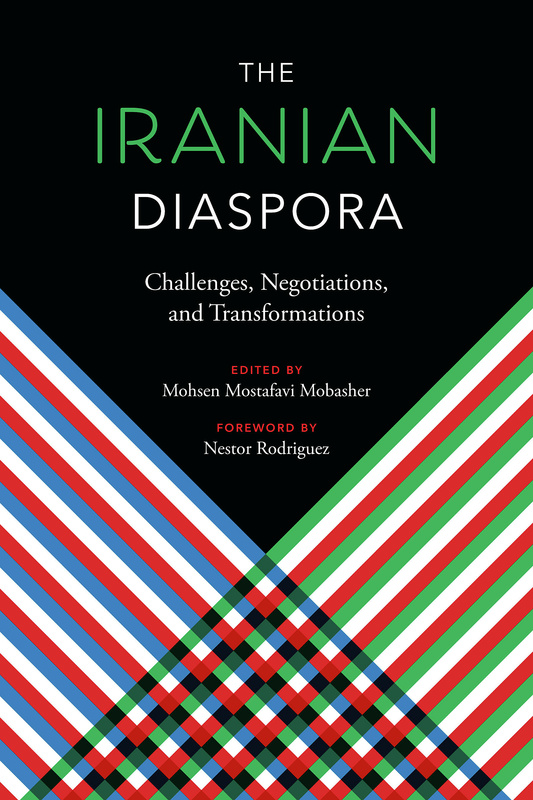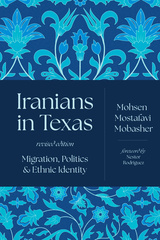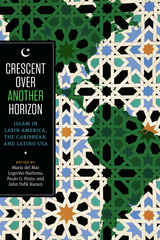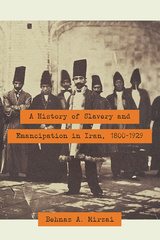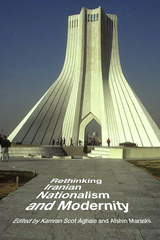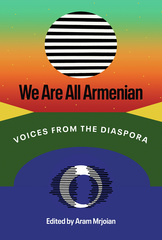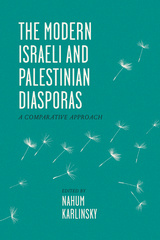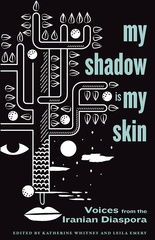The Iranian Diaspora
Challenges, Negotiations, and Transformations
The Iranian revolution of 1978–1979 uprooted and globally dispersed an enormous number of Iranians from all walks of life. Bitter political relations between Iran and the West have since caused those immigrants to be stigmatized, marginalized, and politicized, which, in turn, has discredited and distorted Iranian migrants’ social identity; subjected them to various subtle and overt forms of prejudice, discrimination, and social injustice; and pushed them to the edges of their host societies. The Iranian Diaspora presents the first global overview of Iranian migrants’ experiences since the revolution, highlighting the similarities and differences in their experiences of adjustment and integration in North America, Europe, Australia, and the Middle East.
Written by leading scholars of the Iranian diaspora, the original essays in this volume seek to understand and describe how Iranians in diaspora (re)define and maintain their ethno-national identity and (re)construct and preserve Iranian culture. They also explore the integration challenges the Iranian immigrants experience in a very negative context of reception. Combining theory and case studies, as well as a variety of methodological strategies and disciplinary perspectives, the essays offer needed insights into some of the most urgent and consequential issues and problem areas of immigration studies, including national, ethnic, and racial identity construction; dual citizenship and dual nationality maintenance; familial and religious transformation; politics of citizenship; integration; ethnic and cultural maintenance in diaspora; and the link between politics and the integration of immigrants, particularly Muslim immigrants.
One of the most significant contributions of the book is the demonstration of a pervasive disjuncture between Iranian assimilation efforts—through language, education, occupation, residence, and intermarriage—and their consistently undervalued status within host countries.
Iranian Diaspora is an important book that provides valuable insights into the Iranian immigrant experience.
Mobasher's edited volume is a valuable contribution to the study of the Iranian diaspora. The chapters offer important insights into the variety of experiences of Iranian migrants, and will be of interest to scholars of diaspora, identity formation, and immigration.
[The Iranian Diaspora] provides an invaluable contribution to diaspora literature..Mobasher’s edited volume is an important work that personalizes the voices of first- and second-generation Iranians in diaspora in different parts of the world. His book will be a classic.
The most thorough chronicle yet published of the second-generation Iranian diaspora and their activities in the United States, Europe, Australia, and the United Arab Emirates. This analytic but ardent book makes a strong case that the second-generation Iranian diaspora will grapple with the issues of identity crisis, political exclusion, social integration, and a complicated but highly evolving new experience of collective memory. The timing of this study couldn’t be better in light of the refugee crisis in the Middle East and beyond. This is a topical, perceptive, and provocative book.
A solid book that is a good addition to the global literature on immigrants in general and Muslim/Iranian immigrants in particular. There is no volume like this that compares Iranians across different national contexts.
MOHSEN MOSTAFAVI MOBASHER is an associate professor of anthropology and sociology at the University of Houston–Downtown. He is the author of Iranians in Texas: Migration, Politics, and Ethnic Identity and coeditor of Migration, Globalization, and Ethnic Relations: An Interdisciplinary Approach.
- Tables and Figures
- Foreword (Nestor Rodriguez)
- Acknowledgments
- Introduction (Mohsen Mostafavi Mobasher)
- Part I: Ethnic Identity and Challenges of Integration
- 1. Adult Children of Professional and Entrepreneurial Immigrants: Second-Generation Iranians in the United States (Mehdi Bozorgmehr and Eric Ketcham)
- 2. Host Discrimination, Bounded Mobility, and Bounded Belonging: Iranians in Germany (Sahar Sadeghi)
- 3. Challenges of Integration and Belonging: Iranians in the Netherlands (Halleh Ghorashi)
- 4. Integration, Cultural Production, and Challenges of Identity Construction: Iranians in Great Britain (Kathryn Spellman and Reza Gholami)
- 5. Transmigration, Proximity, and Sociopolitical Disconnection: Iranians in the United Arab Emirates (Behzad Sarmadi)
- Part II: Creative Cultural Activities and (Re)construction of Culture and Ethnic Identity)
- 6. Construction of National Identity through Ethnic Poetry, Film, and Play: Iranians in Australia (Sanaz Fotouhi)
- 7. Diaspora and Literary Production: Iranians in France (Laetitia Nanquette)
- 8. Diaspora and Ethnic Identity Construction and Negotiation through Literary Production: Iranians in Italy (Alice Miggiano)
- Conclusion: Prospect for Integration of Iranians and Questions for Future Research (Mohsen Mostafavi Mobasher)
- Bibliography
- Contributors
- Index

